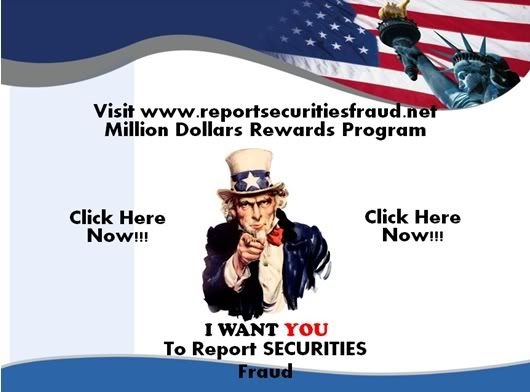
Source- http://www.sec.gov/News/PressRelease/Detail/PressRelease/1370540247852#.Un2WTPmsigI
Washington D.C., Nov. 4, 2013 —
The Securities and Exchange Commission today announced an emergency asset freeze to halt a Ponzi scheme involving U.S. and New Zealand-based companies peddling sham investment opportunities ranging from a bank trading program to kidney dialysis clinics.
The SEC alleges that Christopher A.T. Pedras, who has residences in Turlock, Calif., and New Zealand, misled his initial investors into believing they were investing in a profitable trading platform in which his company served as an intermediary between global banks. When Pedras and his companies encountered difficulty paying the promised 4 to 8 percent monthly returns, they began steering investors to a different investment program to purportedly increase the value of their investment by 80 percent by funding kidney dialysis clinics in New Zealand. Pedras’s business partner Sylvester M. Gray II and lead sales representative Alicia Bryan helped him solicit investors for both programs, and the money was never invested as promised. Earlier investors were paid supposed returns with funds received from newer investors, and Pedras stole more than $2 million and spent another $1.2 million on sales agents.
“Rather than conducting any legitimate business activity, Pedras and his partners were simply operating a Ponzi scheme that was ultimately doomed to collapse,” said Michele Wein Layne, director of the SEC’s Los Angeles Regional Office. “This emergency action stops them from fraudulently raising any more money from U.S. investors.”
According to the SEC’s complaint unsealed late Friday in U.S. District Court for the Central District of California, Pedras raised more than $5.6 million from at least 50 investors in the U.S. since July 2010 by selling securities in two phases. Pedras, Gray, and Bryan first solicited investors for their Maxum Gold Small Cap Trade Program in which Pedras’s company Maxum Gold purportedly serves as the intermediary between banks that can’t legally trade with each other directly, so they use Maxum Gold’s trade platform to do so indirectly. Maxum Gold purports to share portions of the trading profits with investors.
The SEC alleges that the Ponzi scheme shifted gears earlier this year when Pedras and others began promoting the FMP Renal Program to Maxum Gold investors. They characterized it as an investment in a New Zealand company called FMP Medical Services Limited that would be publicly traded and operate kidney dialysis clinics in New Zealand. Investors were told if they converted their Maxum Gold investments into the FMP Renal Program, they would instantly realize an 80 percent increase in the value of their investment.
According to the SEC’s complaint, Pedras and Bryan routinely communicate with investors via email and also conduct investor conference calls. Pedras has falsely claimed that Maxum Gold has been doing business for 15 to 20 years with more than 6,000 clients and has been making regular payments to investors. Pedras conducted at least one in-person seminar at Paramount Studios in Los Angeles. Investments were falsely touted as risk-free and investor funds were not maintained safely in escrow accounts as described to investors.
The SEC alleges that the Ponzi scheme paid investors more than $2.4 million in “returns” using new investor money. Pedras stole more than $2 million from investors in the form of cash withdrawals, car and retail purchases, and transfers of investor funds to his various companies. Approximately $1.2 million in sales commissions were paid to a small network of sales agents who sold the investments to U.S. investors.
According to the SEC’s complaint, during at least one conference call, Pedras advised investors not to respond if contacted by the SEC. He characterized SEC investor questionnaires as “fake” and stated that the SEC’s investigation was motivated by a “personal vendetta” against him.
The SEC’s complaint charges Pedras, Gray, Bryan and the Maxum Gold and FMP entities with violations of Section 17(a) of the Securities Act of 1933 and Section 10(b) of the Securities Exchange Act of 1934 and Rule 10b-5. Pedras and Bryan also are charged with violations of Section 15(a) of the Exchange Act, and they and Pedras’s companies are charged with violations of Sections 5(a) and 5(c) of the Securities Act. The Honorable Gary Feess granted the SEC’s request for a temporary asset freeze against Maxum Gold, FMP, and Pedras. Judge Feess’s order prohibits the destruction of documents and requires the defendants to provide accountings. A court hearing has been scheduled for November 8.
************************************************************************
Report Securities Fraud by Calling 1-888-985-9844 or by visiting



















